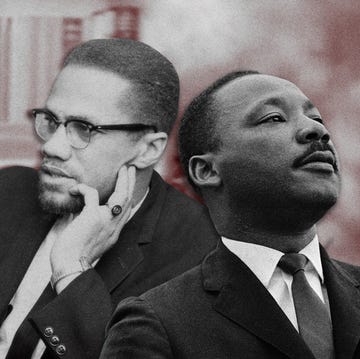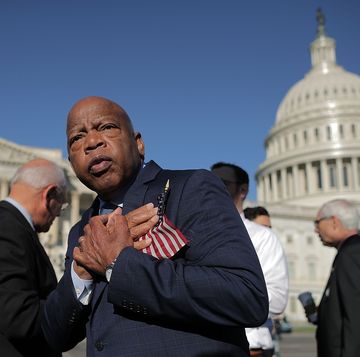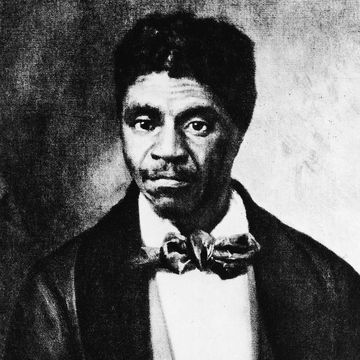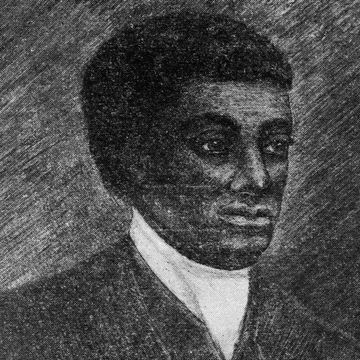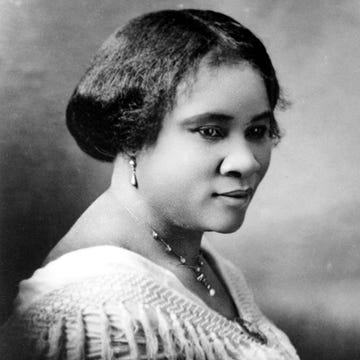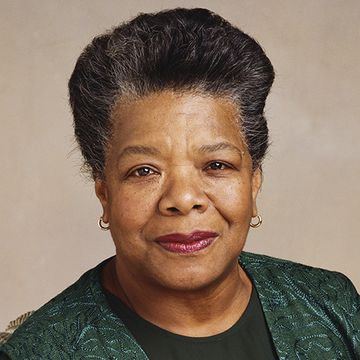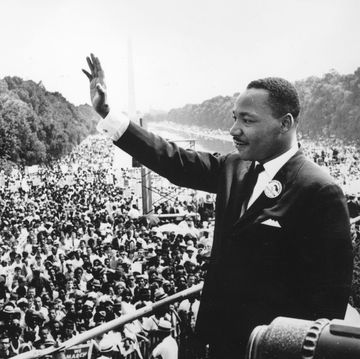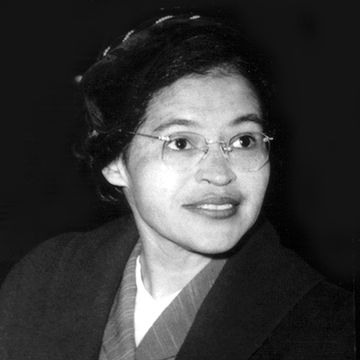(1887-1940)
Who Was Marcus Garvey?
Marcus Garvey was an orator for the Black Nationalism and Pan-Africanism movements, to which end he founded the Universal Negro Improvement Association and African Communities League. Garvey advanced a Pan-African philosophy which inspired a global mass movement, known as Garveyism. Garveyism would eventually inspire others, from the Nation of Islam to the Rastafari movement.
Quick Facts
FULL NAME: Marcus Mosiah Garvey, Jr.
BIRTHDATE: August 17, 1887
BIRTHPLACE: St. Ann's Bay, Jamaica
DEATH: June 10, 1940
SPOUSE: Amy Jacques Garvey (m. 1922-1940), Amy Ashwood Garvey (m. 1919-1922)
CHILDREN: Marcus Mosiah Garvey, III
ASTROLOGICAL SIGN: Leo
Early Life
Marcus Mosiah Garvey, Jr. was born on August 17, 1887, in St. Ann's Bay, Jamaica. Self-educated, Garvey founded the Universal Negro Improvement Association, dedicated to promoting African Americans and resettlement in Africa. In the United States, he launched several businesses to promote a separate Black nation. After he was convicted of mail fraud and deported back to Jamaica, he continued his work for Black repatriation to Africa.
Garvey was the last of 11 children born to Marcus Garvey, Sr. and Sarah Jane Richards. His father was a stonemason, and his mother a domestic worker and farmer. Marcus Sr. was a great influence on Garvey, who once described him as "severe, firm, determined, bold, and strong, refusing to yield even to superior forces if he believed he was right." His father was known to have a large library, where young Garvey learned to read.
At age 14, Garvey became a printer's apprentice. In 1903, he traveled to Kingston, Jamaica, and soon became involved in union activities. In 1907, he took part in an unsuccessful printer's strike and the experience kindled in him a passion for political activism. Three years later, he traveled throughout Central America working as a newspaper editor and writing about the exploitation of migrant workers in the plantations. He later traveled to London where he attended Birkbeck College (University of London) and worked for the African Times and Orient Review, which advocated Pan-African nationalism.
Founding the United Negro Improvement Association (U.N.I.A.)
Garvey's Philosophy and Beliefs
Garvey returned to Jamaica in 1912 and founded the Universal Negro Improvement Association (U.N.I.A.) with the goal of uniting all of African diaspora to "establish a country and absolute government of their own." After corresponding with Booker T. Washington, the American educator who founded Tuskegee Institute, Garvey traveled to the United States in 1916 to raise funds for a similar venture in Jamaica. He settled in New York City and formed a U.N.I.A. chapter in Harlem to promote a separatist philosophy of social, political, and economic freedom for Black people. In 1918, Garvey began publishing the widely distributed newspaper Negro World to convey his message.
Black Star Line
By 1919, Garvey and U.N.I.A. had launched the Black Star Line, a shipping company that would establish trade and commerce between Africans in America, the Caribbean, South and Central America, Canada and Africa. At the same time, Garvey started the Negros Factories Association, a series of companies that would manufacture marketable commodities in every big industrial center in the Western hemisphere and Africa.
In August 1920, U.N.I.A. claimed 4 million members and held its first International Convention at Madison Square Garden in New York City. Before a crowd of 25,000 people from all over world, Marcus Garvey spoke of having pride in African history and culture. Many found his words inspiring, but not all. Some established Black leaders found his separatist philosophy ill-conceived. W.E.B. Du Bois, a prominent Black leader and officer of the N.A.A.C.P. called Garvey, "the most dangerous enemy of the Negro race in America." Garvey felt Du Bois was an agent of the white elite.
Under Surveillance By J. Edgar Hoover
But Du Bois wasn't the worst adversary of Garvey; history would soon reveal F.B.I. Director J. Edgar Hoover's fixation on ruining Garvey for his radical ideas. Hoover felt threatened by the Black leader, fearing he was inciting Black people across the country to stand up in militant defiance.
Hoover referred to Garvey as a "notorious negro agitator" and for several years, desperately sought ways to find damning personal information on him, even going so far as to hire the first Black F.B.I. agent in 1919 in order to infiltrate Garvey's ranks and spy on him.
"They placed spies in the U.N.I.A.," said historian Winston James. "They sabotaged the Black Star Line. The engines... of the ships were actually damaged by foreign matter being thrown into the fuel."
Hoover would use the same methods decades later to obtain information on Black leaders like Martin Luther King Jr. and Malcolm X.
Charged and Deported to Jamaica
In 1922, Garvey and three other U.N.I.A. officials were charged with mail fraud involving the Black Star Line. The trial records indicate several improprieties occurred in the prosecution of the case. It didn't help that the shipping line's books contained many accounting irregularities. On June 23, 1923, Garvey was convicted and sentenced to prison for five years. Claiming to be a victim of a politically motivated miscarriage of justice, Garvey appealed his conviction, but was denied. In 1927 he was released from prison and deported to Jamaica.
Garvey continued his political activism and the work of U.N.I.A. in Jamaica, and then moved to London in 1935. But he did not command the same influence he had earlier. Perhaps in desperation or maybe in delusion, Garvey collaborated with outspoken segregationist and white supremacist Senator Theodore Bilbo of Mississippi to promote a reparations scheme. The Greater Liberia Act of 1939 would deport 12 million African Americans to Liberia at federal expense to relieve unemployment. The act failed in Congress, and Garvey lost even more support among the Black population.
Death and Accomplishments
Garvey died in London in 1940 after several strokes. Due to travel restrictions during World War II, his body was interred in London. In 1964, his remains were exhumed and taken to Jamaica, where the government proclaimed him Jamaica's first national hero and re-interred him at a shrine in the National Heroes Park. But his memory and influence remain. His message of pride and dignity inspired many in the early days of the civil rights movement in the 1950s and 1960s. In tribute to his many contributions, Garvey's bust has been displayed in the Organization of American States' Hall of Heroes in Washington, D.C. The country of Ghana has named its shipping line the Black Star Line and its national soccer team the Black Stars, in honor of Garvey.
Fact Check: We strive for accuracy and fairness. If you see something that doesn't look right, contact us!
QUOTES
- Hungry men have no respect for law, authority or human life.
- If you have no confidence in self you are twice defeated in the race of life. With confidence you have won even before you have started.
- [Poverty is] a hellish state to be in. It is no virtue. It is a crime.
- Our union must know no clime, boundary, or nationality... let us hold together under all climes and in every country.
- We were the first Fascists, when we had 100,000 disciplined men, and were training children, Mussolini was still an unknown. Mussolini copied our Fascism.
- The question may start in America, but [it] will not end there.
- Just at that time, other races were engaged in seeing their cause through—the Jews through their Zionist movement and the Irish through their Irish movement—and I decided that, cost what it might, I would make this a favorable time to see the Negro's interest through.
- My garb is Scotch, my name is Irish, my blood is African, and my training is half American and half English, and I think that with that tradition I can take care of myself.
- The Negro's chance will come when the smoke from the fire and ashes of 20th-century civilization has blown off.
- There are two classes of men in the world, those who succeed and those who do not succeed.
- Be not deceived. Wealth is strength, wealth is power, wealth is influence, wealth is justice, is liberty, is real human rights.
- If the Negro is not careful he will drink in all the poison of modern civilization and die from the effects of it.
The Biography.com staff is a team of people-obsessed and news-hungry editors with decades of collective experience. We have worked as daily newspaper reporters, major national magazine editors, and as editors-in-chief of regional media publications. Among our ranks are book authors and award-winning journalists. Our staff also works with freelance writers, researchers, and other contributors to produce the smart, compelling profiles and articles you see on our site. To meet the team, visit our About Us page: https://www.biography.com/about/a43602329/about-us



